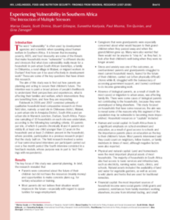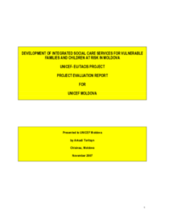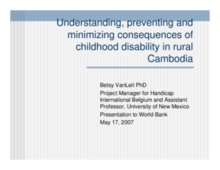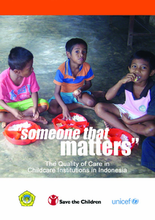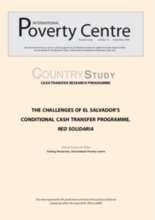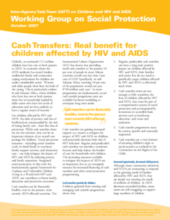Displaying 871 - 880 of 950
Provides insight into the situation of children outside parental care in South Asia, gaps in legislation, capacity, and services, with reference to national and international legal instruments.
Provides analysis on the implementation and outcomes of child abandonment prevention and orphan care programming in Bolivia.
Research study aimed at understanding the meaning of vulnerability and it's impact on parent's future planning for children in the context of poverty in Malawi and South Africa
This review explores the short- and long-term implications of migration for families in the context of HIV and AIDS, focusing mainly on sub-Saharan Africa.
Examines the outcomes of family strengthening model in Uganda.
Project Evaluation Report for UNICEF Moldova
This presentation given to the World Bank in May 2007 describes a study conducted in Cambodia on the situation and needs of children with disabilities and their families.
Comprehensive evaluation of national responses and level of care standards for children without parental care in Indonesia.
Provides analysis of the historical background and current structure of El Salvador's conditional cash transfer programme with attention to family integration
A 4-page advocacy document outlining the potential benefit of cash transfers in the context of children and AIDS.



